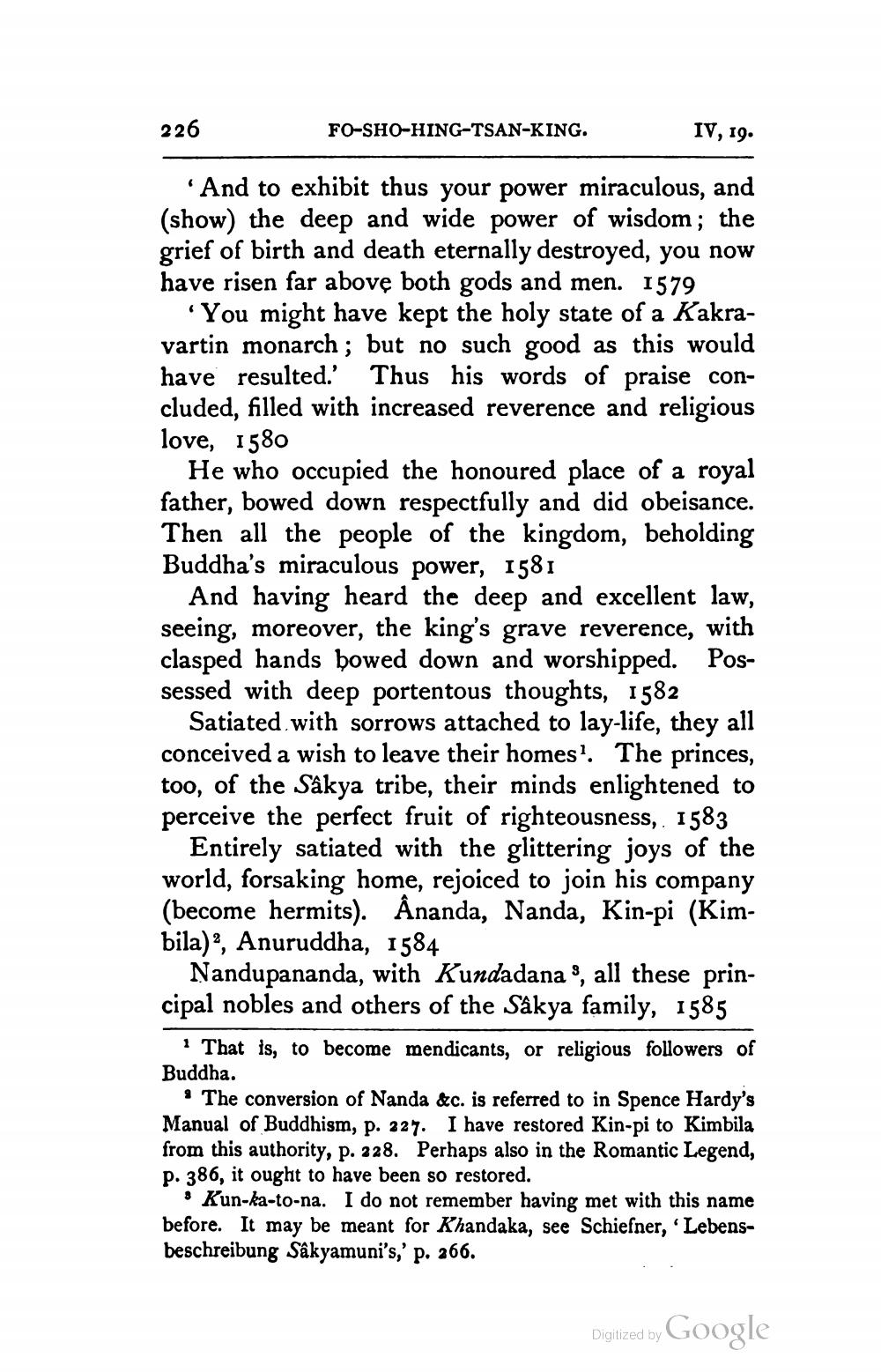________________
226
FO-SHO-HING-TSAN-KING.
IV, 19.
And to exhibit thus your power miraculous, and (show) the deep and wide power of wisdom; the grief of birth and death eternally destroyed, you now have risen far above both gods and men. 1579
You might have kept the holy state of a Kakravartin monarch ; but no such good as this would have resulted.' Thus his words of praise concluded, filled with increased reverence and religious love, 1580
He who occupied the honoured place of a royal father, bowed down respectfully and did obeisance. Then all the people of the kingdom, beholding Buddha's miraculous power, 1581
And having heard the deep and excellent law, seeing, moreover, the king's grave reverence, with clasped hands bowed down and worshipped. Possessed with deep portentous thoughts, 1582
Satiated with sorrows attached to lay-life, they all conceived a wish to leave their homes?. The princes, too, of the Sâkya tribe, their minds enlightened to perceive the perfect fruit of righteousness, 1583
Entirely satiated with the glittering joys of the world, forsaking home, rejoiced to join his company (become hermits). Ânanda, Nanda, Kin-pi (Kimbila)?, Anuruddha, 1584
Nandu pananda, with Kundadana , all these principal nobles and others of the Sâkya family, 1585
1 That is, to become mendicants, or religious followers of Buddha.
. The conversion of Nanda &c. is referred to in Spence Hardy's Manual of Buddhism, p. 227. I have restored Kin-pi to Kimbila from this authority, p. 228. Perhaps also in the Romantic Legend, p. 386, it ought to have been so restored.
• K’un-ka-to-na. I do not remember having met with this name before. It may be meant for Khandaka, see Schiefner, 'Lebensbeschreibung Sâkyamuni's,' p. 266.
Digitized by Google




